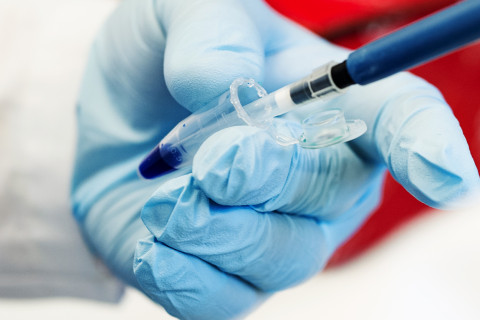The doctoral dissertation in the field of Molecular Medicine will be examined at the Faculty of Health Sciences at Kuopio campus.
What is the topic of your doctoral research? Why is it important to study the topic?
Cardiovascular diseases continue to be the world's leading cause of disease burden. Therapeutic angiogenesis is a desired treatment for ischemia-related cardiovascular diseases which can enable restoration of blood supply in affected tissue. Gene therapy-based therapeutic angiogenesis, mediated by viral vector delivery of angiogenic factors represents a promising strategy. In this thesis, the regulation of angiogenic factors was studied. In addition, using genomic regulatory elements, endothelial-specific viral vectors were developed which were then tested with angiogenic factors.
What are the key findings or observations of your doctoral research?
In the first study of this thesis, we investigated the regulation of vascular endothelial growth factors (VEGFs) in endothelial cells. This study uncovers novel lncRNAs and enhancers regulating VEGFA and VEGFC that can be targeted to modulate the expression of these important molecules for angiogenesis therapy. The second study sought to develop an endothelial targeting vector using an endothelial-specific regulatory element such as a super-enhancer (SE) or promoter. This study identified E2, a SE-derived enhancer that drives transgene expression, specifically in endothelial cells, in the context of a lentiviral (LV) vector. E2 demonstrated regulation of ADAMTS18, which was further revealed as a new player in angiogenesis. Furthermore, we were able to achieve increased angiogenesis through in vitro delivery of the angiogenic transgenes VEGFR2 and CXCR4, in the context of endothelial-specific vector LV-E2. Another finding of this study was the identification of ICAM2p as a suitable endothelial cell-specific promoter for vascular-targeted gene therapy.
How can the results of your doctoral research be utilised in practice?
The results of this thesis not only offer new therapeutic approaches for vascular diseases, but also have the potential to benefit a wide range of diseases. The ability to use a wide range of ligands in endothelial-directed gene delivery would enable new treatment options, such as angiogenesis or lymphangiogenesis-related therapies. Furthermore, the availability of SEs for use in a broad range of human cells could lead to the development of an LV-SE vector with therapeutic applications for a wide spectrum of human disease types e.g monogenic-associated diseases and cancer.
What are the key research methods and materials used in your doctoral research?
In this thesis, the identification of putative enhancers regions involved genome-wide global run-on (GRO-seq), Hi-C data and Chromatin Immunoprecipitation Sequencing (ChIP-Seq) from human umbilical vein endothelial cells (HUVECs). The activity and specificity of candidate enhancers were in vitro evaluated by reporter assay in various mammalian cell lines. Endogenous enhancer activity was investigated using the CRISPR-Cas9-based deletion technique, followed by expression analysis, and RNA-seq analysis to identify enhancer potential downstream targets and associated biological processes. The endothelial functional implication of generated endothelial-specific vector was evaluated by performing cell proliferation, cell migration and angiogenesis assays.
The doctoral dissertation of Isidore Mushimiyimana, MSc, entitled Endothelial-targeted gene regulation for angiogenic therapy will be examined at the Faculty of Health Sciences. The Opponent in the public examination will be Professor Thierry VandenDriessche of the Free University of Brussels
and the Custos will be Professor Seppo Ylä-Herttuala of the University of Eastern Finland.
Doctoral dissertation
For further information, please contact:
Isidore Mushimiyimana, MSc, isidore.mushimiyimana(a)uef.fi, 0468446068



